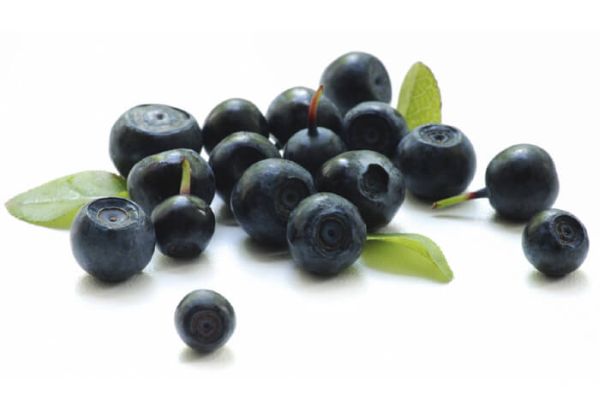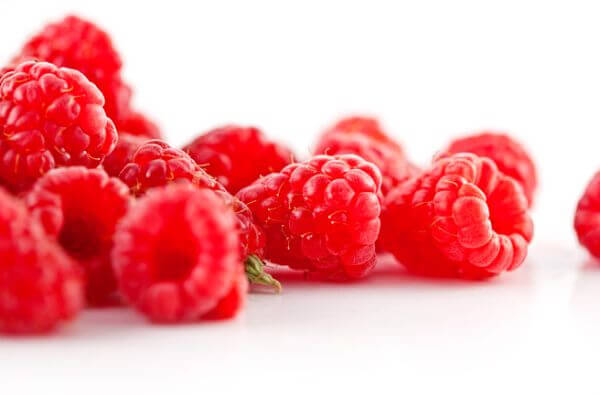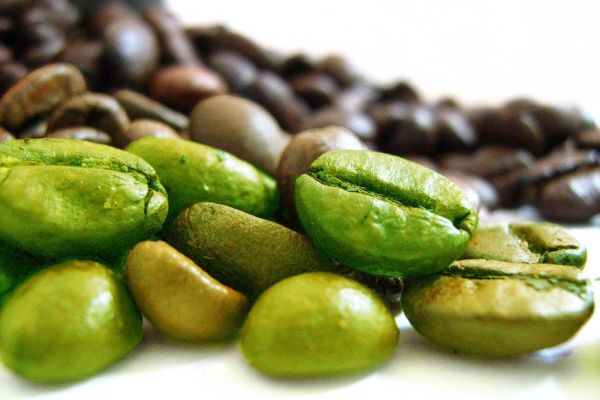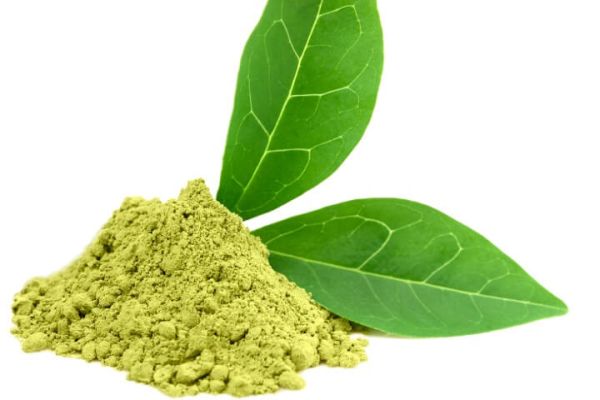The US weight loss market is absolutely massive (worth nearly $61 billion as of 2011), and weight loss pills account for about $1.5 billion of that pie.
When people are spending that kind of money, count on the hucksters and shysters to be operating in force.
The result is, well, what we see in the marketplace: an absolute glut of weight loss products and dietary routines, all advertised as better than the next.
This can make weight loss a very confusing, frustrating, and expensive endeavor.
Well, the first thing you should know is that NO pill will cause you to magically lose weight. You have to regulate your caloric intake to lose weight (you have to feed your body less energy than it burns every day).
That said, in this article, I’m going to go over the ingredients in variety of popular “weight loss pills” and show you which can speed up weight loss when combined with a proper diet, which don’t, and which scientists are unsure of.
Before you buy that next bottle of weight loss pills, check out the ingredients and compare them against this list. You won’t find everything here, but these are the most popular ones at the moment.
Let’s get the bad out of the way first.
In the spirit of full disclosure, I want you to know that the supplements I recommend in this article are not just what I personally use but they are from my supplement line, LEGION.
As you probably know, the supplement industry is notorious for its lies and shenanigans. The truth is the majority of the supplements you see in the magazines and on the shelves aren’t going to help you reach your goals faster.
That’s why I decided to create the products I myself have always wanted: science-based formulations, clinically effective dosages of all ingredients, no fillers or unnecessary junk, and natural sweetening and flavoring.
You can learn more about LEGION and my goal to change the supplement industry for the better here.
And if you like what you see and decide to support my work…you’re awesome. 🙂 It’s because of people like you that I get to spend my time writing articles like this that help others get into the best shape of their lives.
Table of Contents
+Acai Berry and Weight Loss

The acai berry craze has passed, but it still remains a solid top seller in the world of weight loss supplements.
I’ll keep this short and simple, and just quote the National Center for Complementary and Alternative Medicine:
“There is no definitive scientific evidence based on studies in humans to support the use of acai berry for any health-related purpose.
“No independent studies have been published in peer-reviewed journals that substantiate claims that acai supplements alone promote rapid weight loss. Researchers who investigated the safety profile of an acai-fortified juice in animals observed that there were no body weight changes in rats given the juice compared with controls.”
The Bottom Line
Don’t waste your money on acai berry products if you’re trying to lose weight.
Carnitine and Weight Loss

Carnitine is a compound that your body produces from the amino acids lysine and methionine, and it plays a vital role in the generation of cellular energy.
While there is scientific evidence that carnitine supplementation can help with muscle recovery after exercise, does it have anything to offer in the way of weight loss?
Well, it does have a mechanism that is of interest: it increases fat oxidation in the muscles.
What this means is it appears to increase the rate at which muscle tissue burns fat for fuel instead of glycogen. Theoretically, this might result in additional fat loss while exercising.
Actual research is less than promising, however.
There’s evidence that carnitine can reduce fat mass and increase muscle mass in the elderly, but these effects were not seen when it was tested with overweight pre-menopausal women.
Animal research has also failed to demonstrate any weight loss benefits when simply combined with a calorie-restricted diet.
Thus, scientists don’t know yet if carnitine’s metabolic effect are profound enough to actually accelerate weight loss when combined with exercise.
Animal research says no, as well as a human trial (which isn’t definitive due to flaws in design, but is worth noting).
The Bottom Line
Unless your body’s ability to oxidize fat is impaired by disease or dysfunction, the research currently available says that carnitine supplementation isn’t likely to help with weight loss.
Raspberry Ketones and Weight Loss

Raspberry ketones are the primary aroma compound of the red raspberry (it gives the raspberry its smell), and it’s also found in other fruits like the blackberry and cranberry.
How did such a seemingly random compound find its way into weight loss products?
Well, it started with a couple animal studies. One demonstrated that raspberry ketone supplementation prevented weight gain by increasing lipolysis and fat oxidation, and the other backed up this mechanism.
That might be promising if it weren’t for a few little details:
- Animal research can not be used as proof of human effectiveness. The human and rat body just isn’t similar enough, and this is especially true when talking about metabolic functions.
- One of the rat studies was in vitro research. This means parts of living rats were removed to be studied in isolation, as opposed to research done with living, intact organisms (in vivo research).
In vitro research is less definitive than in vivo because living organisms are incredibly complex, and sometimes in vitro findings just don’t pan out in vivo.
- The in vivo rat study that demonstrated weight gain prevention used an absolutely massive oral dose: up to 20 g/kg of body weight, or 4761 times greater than the average human intake.
There is one human trial I know of that is commonly cited as evidence of raspberry ketone’s effectiveness for weight loss. The problem with this study, however, is the compound was paired with caffeine, capsaicin, garlic, ginger, and citrus aurantium as a source of synephrine. It’s impossible to know if the raspberry ketone did anything or not.
The Bottom Line
There is insufficient evidence to support the use of low oral doses of raspberry ketone for weight loss purposes. Save your money.
Garcinia Cambogia and Weight Loss

Garcinia cambogia is a small fruit often used in Indian and Asian cuisine to impart a sour flavor.
It’s a good natural source of hydroxycitric acid, and has received a lot of media attention recently as a weight loss aid.
These claims are unfounded, however.
Like many fad supplements, garcinia cambogia has some animal research on its side, but human research is contradictory and hard to interpret.
A couple rat studies, such as this one, have demonstrated that garcinia cambogia can reduce weight gain during a period of overfeeding. The mechanism by which it accomplished this is the suppression of fatty acid synthesis in the liver (it reduced the amount of fat the body could make from the excess calories).
The human research bursts that bubble, though.
A meta analysis of 12 randomized clinical trials of garcinia cambogia found the following:
- Three studies with small sample sizes reported statistically significant, albeit small, decreases in fat mass over the placebo groups.
(In case you were wondering, the best result was 1.3 kg more weight lost than placebo group over a 3-month period.)
- Two studies found no difference in weight loss between the garcinia cambogia and placebo groups, including the largest and most rigorous study reviewed.
- The results of the remaining studies reviewed were marred by serious design and/or execution flaws.
The Bottom Line
The research currently available says that garcinia cambogia probably won’t help you lose weight, but if it did, the best you could hope for is a very small boost.
Green Coffee Extract and Weight Loss

Green coffee extract is a supplement derived from green coffee beans. It’s similar to regular coffee beans, but has high amounts of a substance known as chlorogenic acid.
This substance is particularly hot at the moment, thanks to people like Dr. Oz and other mainstream “health gurus.” It may not be everything they claim, though.
A recent meta analysis of the 5 human trials available found that high dosages of chlorogenic acid via green coffee extract (400-800 mg chlorogenic acid per day) may induce fat loss, but researchers noted that the studies demonstrating this had high risks of bias due to funding sources (for-profit companies producing green coffee extract).
The Bottom Line
Green coffee extract may help you lose weight if taken in high enough dosages.
However, until more research is done on it, and particularly unbiased research, green coffee extract’s value as a weight loss supplement is uncertain.
Caffeine and Weight Loss

Caffeine, the world’s most popular drug, has more value to us fitness folk than the energy high.
It can improve strength, muscle endurance, and anaerobic performance, as well as reverse the “morning weakness” experienced by many weightlifters and, last but not least, speed up fat loss.
The mechanism by which it aids weight loss is quite simple: it speeds up your body’s metabolic rate by increasing the amount of catecholamines in the blood, which are chemicals that mobilize fat stores to be burned for energy.
Part of maximizing the fat loss benefits of caffeine is preventing your body from building up too much of a tolerance, however. The best way to do this is to limit intake, of course.
Here’s what I recommend:
- Before training, supplement with 3 – 6 mg caffeine per kg of body weight. If you’re not sure of your caffeine sensitivity, start with 3 mg/kg and work up from there.
- Keep your daily. intake at or below 6 mg per kg of body weight. Don’t have 6 mg/kg before training and then drink a couple of coffees throughout the day.
- Do 1 – 2 low-caffeine days per week, and 1 no-caffeine day per week. A low day should be half your normal intake, and a no day means less than 50 mg of caffeine (you can have a cup or two of tea, but no coffee, caffeine pills, etc.).
The Bottom Line
When combined with a proper diet, caffeine can help you lose weight faster.
Don’t abuse it, however. If consumed too acutely and regularly, tolerance builds (which reduces its effects) and withdrawal symptoms are common.
When I use caffeine for weight loss purposes, I consume no more than 5-6 mg/kg per day, usually in two doses per day before exercise.
Personally I get my caffeine from my pre-workout PULSE, which contains a dehydrated and concentrated form of caffeine (caffeine anhydrous) shown to be more effective for improving performance than what is naturally found in beverages like coffee.
PULSE also contains clinically effective dosages of 5 other ingredients scientifically proven to improve workout performance:
- Beta-Alanine. Beta-alanine is a naturally occurring amino acid that reduces exercise-induced fatigue, improves anaerobic exercise capacity, and can accelerate muscle growth.
- Citrulline Malate. Citrulline is an amino acid that improves muscle endurance, relieves muscle soreness, and improves aerobic performance.
- Betaine. Betaine is a compound found in plants like beets that improves muscle endurance, increases strength, and increases human growth hormone and insulin-like growth factor 1 production in response to acute exercise.
- Ornithine. Ornithine is an amino acid found in high amounts in dairy and meat that reduces fatigue in prolonged exercise and promotes lipid oxidation (the burning of fat for energy as opposed to carbohydrate or glycogen).
- Theanine. Theanine is an amino acid found primarily in tea that reduces the effects of mental and physical stress, increases the production of nitric oxide, which improves blood flow, and improves alertness, focus, attention, memory, mental task performance, and mood.
And what you won’t find in PULSE is equally special:
- No artificial sweeteners or flavors..
- No artificial food dyes.
- No unnecessary fillers, carbohydrate powders, or junk ingredients.
The bottom line is if you want to know what a pre-workout is supposed to feel like…if you want to experience the type of energy rush and performance boost that only clinically effective dosages of scientifically validated ingredients can deliver…then you want to try PULSE.
Green Tea Extract and Weight Loss

Green tea extract is an herbal product derived from green tea leaves. It contains a large amount of a substance known as a “catechin,” which is responsible for many of tea’s health benefits.
One of these benefits relates to weight loss: Research has shown that supplementation with green tea extract reduces total fat mass, accelerates exercise-induced fat loss, and can help reduce abdominal fat, in particular.
The primary mechanism by which it accomplishes this is inhibiting an enzyme that degrades catecholamines, which are chemicals that mobilize fat stores to be burned for energy. This also makes green tea extract work synergystically with caffeine–caffeine increases catecholamine levels, and green tea extract extends the amount of time they spend in the blood.
The epigallocatechin gallate in my fat burner Phoenix is the catechin most associated with weight loss benefits, so if you’re taking Phoenix, you don’t need to supplement with GTE. If you’re not, however, GTE is a worthwhile addition to your fat loss regimen.
The Bottom Line
Green tea extract is an effective fat loss agent, as well as an effective weight management agent.
Habitual caffeine consumption will reduce its effects, however, and you must take enough (400-600 mg of catechins per day, according to the research available).
The epigallocatechin gallate in my fat burner PHOENIX is the catechin most associated with weight loss benefits, and that’s how I get my EGCG when I’m cutting.
PHOENIX contains clinically effective dosages of other ingredients that help you lose fat faster as well, including…
- Synephrine. This increases both basal metabolic rate and lipolysis, inhibits the activity of certain fat cell receptors that prevent fat mobilization, and increases the thermic effect of food (the “energy cost” of metabolizing food).
- Naringin. This stimulates the production of a hormone called adiponectin, which is involved in the breakdown of fat cells, and that it activates a type of receptor in fat cells that regulates fat mobilization (the PPARα receptor).
Through these mechanisms, naringin also works synergistically with synephrine and hesperidin to further accelerate the basal metabolic rate.
- Hesperidin. Like naringin, this also stimulates the production of adiponectin and activates the PPARa receptor. It also improves blood flow and reduces the inflammation of blood vessels.
- Epigallocatechin gallate (EGCG). This inhibits the activity of a different enzyme also responsible for breaking down neurotransmitters that induce lipolysis. It has also been shown to reduce abdominal fat in particular.
- Forskolin. This increases blood plasma and intracellular levels of a molecule known as cAMP. When cAMP is high, it signifies a lack of ATP (the most basic form of cellular energy in the body) and thus initiates a process to make more ATP by burning through energy reserves (body fat).
Research has show that supplementation with forskolin accelerates fat loss and increases testosterone levels.
- And more…
The bottom line is if you want to lose fat faster without pumping yourself full of stimulants or other potentially harmful chemicals…then you want to try PHOENIX.
Yohimbine and Weight Loss

Yohimbine is made from the Pausinystalia yohimbe plant, and it helps the body “tap into” fat stores.
(Not a very technical explanation, I know–if you want to know exactly how it works, check out this article of mine on how to lose stubborn fat.)
Yohimbine accelerates weight loss, but only works if you’re training in a fasted state. Elevated insulin levels negate yohimbine’s effects.
I’ve cut both with and without fasted training and yohimbine and I can say with absolutely certainty that with is noticeably faster. So much so that I think the biggest benefits of fasted training are that it lets you use yohimbine and it makes the other supplements discussed in this article more effective.
By itself, fasted training will make a slight difference in how quickly you lose fat. Combined with these supplements, however, it’s quite dramatic.
In terms of dosages, research has shown that .2 mg/kg of body weight is sufficient for fat loss purposes, and that ingesting it prior to exercise is particularly effective.
Some people get overly jittery from yohimbine, so I recommend you start with .1 mg/kg of body weight to assess tolerance. If you feel fine, then increase to the clinically effective dosage of .2 mg/kg.
The Bottom Line
When used properly (high enough dosage, fasted state, before exercise), yohimbine speeds up fat loss.
However, you should know that research has shown that yohimbine can raise blood pressure. If you have high blood pressure, I don’t recommend you use it.
In terms of which specific yohimbine supplement I recommend, you’re probably not surprised that I’ve included a clinically effective dosage in every serving of my pre-workout fat burner FORGE.
FORGE also contains clinically effective dosages of two other ingredients that help you get the most out of your fasted training…
- HMB. HMB is an extremely effective anti-catabolic agent, which means it’s very good at preventing muscle breakdown. This helps you recover faster from your workouts and experience less muscle soreness.
- Citicoline. CDP-choline (also known as citicoline) is a chemical that occurs naturally in the brain that increases levels of another chemical called phosphatidylcholine, which is vital for brain function.
Research shows that supplementation with CDP-choline improves attentional focus, and I included this in FORGE because most people find fasted training more mentally draining than fed training and CDP-choline can help counteract this.
What’s your take on weight loss pills? Have anything else to add? Let me know in the comments below!
Scientific References +
- Thielecke F, Rahn G, Böhnke J, et al. Epigallocatechin-3-gallate and postprandial fat oxidation in overweight/obese male volunteers: A pilot study. Eur J Clin Nutr. 2010;64(7):704-713. doi:10.1038/ejcn.2010.47
- Venables MC, Hulston CJ, Cox HR, Jeukendrup AE. Green tea extract ingestion, fat oxidation, and glucose tolerance in healthy humans. Am J Clin Nutr. 2008;87(3):778-784. doi:10.1093/ajcn/87.3.778
- Hursel R, Viechtbauer W, Westerterp-Plantenga MS. The effects of green tea on weight loss and weight maintenance: A meta-analysis. Int J Obes. 2009;33(9):956-961. doi:10.1038/ijo.2009.135
- Yang CS, Lambert JD, Sang S. Antioxidative and anti-carcinogenic activities of tea polyphenols. Arch Toxicol. 2009;83(1):11-21. doi:10.1007/s00204-008-0372-0
- LeBlanc J, Jobin M, Cote J, Samson P, Labrie A. Enhanced metabolic response to caffeine in exercise-trained human subjects. J Appl Physiol. 1985;59(3):832-837. doi:10.1152/jappl.1985.59.3.832
- Beck TW, Housh TJ, Schmidt RJ, et al. The acute effects of a caffeine-containing supplement on strength, muscular endurance, and anaerobic capabilities. J Strength Cond Res. 2006;20(3):506-510. doi:10.1519/18285.1
- Astorino TA, Rohmann RL, Firth K. Effect of caffeine ingestion on one-repetition maximum muscular strength. Eur J Appl Physiol. 2008;102(2):127-132. doi:10.1007/s00421-007-0557-x
- Onakpoya I, Terry R, Ernst E. The use of green coffee extract as a weight loss supplement: A systematic review and meta-analysis of randomised clinical trials. Gastroenterol Res Pract. 2011. doi:10.1155/2011/382852
- Heymsfield SB, Allison DB, Vasselli JR, Pietrobelli A, Greenfield D, Nunez C. Garcinia cambogia (hydroxycitric acid) as a potential antiobesity agent: A randomized controlled trial. J Am Med Assoc. 1998;280(18):1596-1600. doi:10.1001/jama.280.18.1596
- Onakpoya I, Hung SK, Perry R, Wider B, Ernst E. The use of garcinia extract (hydroxycitric acid) as a weight loss supplement: A systematic review and meta-analysis of randomised clinical trials. J Obes. 2011;2011. doi:10.1155/2011/509038
- Lowenstein JM. Effect of (-)-hydroxycitrate on fatty acid synthesis by rat liver in vivo. J Biol Chem. 1971;246(3):629-632. https://www.ncbi.nlm.nih.gov/pubmed/5542676. Accessed December 7, 2019.
- Rao RN, Sakariah KK. Lipid-lowering and antiobesity effect of (-)hydroxycitric acid. Nutr Res. 1988;8(2):209-212. doi:10.1016/S0271-5317(88)80024-1
- Lopez HL, Ziegenfuss TN, Hofheins JE, et al. Eight weeks of supplementation with a multi-ingredient weight loss product enhances body composition, reduces hip and waist girth, and increases energy levels in overweight men and women. J Int Soc Sports Nutr. 2013;10. doi:10.1186/1550-2783-10-22
- Morimoto C, Satoh Y, Hara M, Inoue S, Tsujita T, Okuda H. Anti-obese action of raspberry ketone. Life Sci. 2005;77(2):194-204. doi:10.1016/j.lfs.2004.12.029
- Park KS. Raspberry ketone increases both lipolysis and fatty acid oxidation in 3T3-L1 adipocytes. Planta Med. 2010;76(15):1654-1658. doi:10.1055/s-0030-1249860
- Villani RG, Gannon J, Self M, Rich PA. L-Carnitine supplementation combined with aerobic training does not promote weight loss in moderately obese women. Int J Sport Nutr. 2000;10(2):199-207. doi:10.1123/ijsnem.10.2.199
- Melton SA, Keenan MJ, Stanciu CE, et al. L-carnitine supplementation does not promote weight loss in ovariectomized rats despite endurance exercise. Int J Vitam Nutr Res. 2005;75(2):156-160. doi:10.1024/0300-9831.75.2.156
- Brandsch C, Eder K. Effect of L-carnitine on weight loss and body composition of rats fed a hypocaloric diet. Ann Nutr Metab. 2002;46(5):205-210. doi:10.1159/000065408
- Malaguarnera M, Cammalleri L, Gargante MP, Vacante M, Colonna V, Motta M. L-Carnitine treatment reduces severity of physical and mental fatigue and increases cognitive functions in centenarians: A randomized and controlled clinical trial. Am J Clin Nutr. 2007;86(6):1738-1744. doi:10.1093/ajcn/86.6.1738
- Stephens FB, Constantin-teodosiu D, Greenhaff PL. New insights concerning the role of carnitine in the regulation of fuel metabolism in skeletal muscle. J Physiol. 2007;581(2):431-444. doi:10.1113/jphysiol.2006.125799
- Volek JS, Kraemer WJ, Rubin MR, Gómez AL, Ratamess NA, Gaynor P. L-carnitine L-tartrate supplementation favorably affects markers of recovery from exercise stress. Am J Physiol - Endocrinol Metab. 2002;282(2 45-2). doi:10.1152/ajpendo.00277.2001










